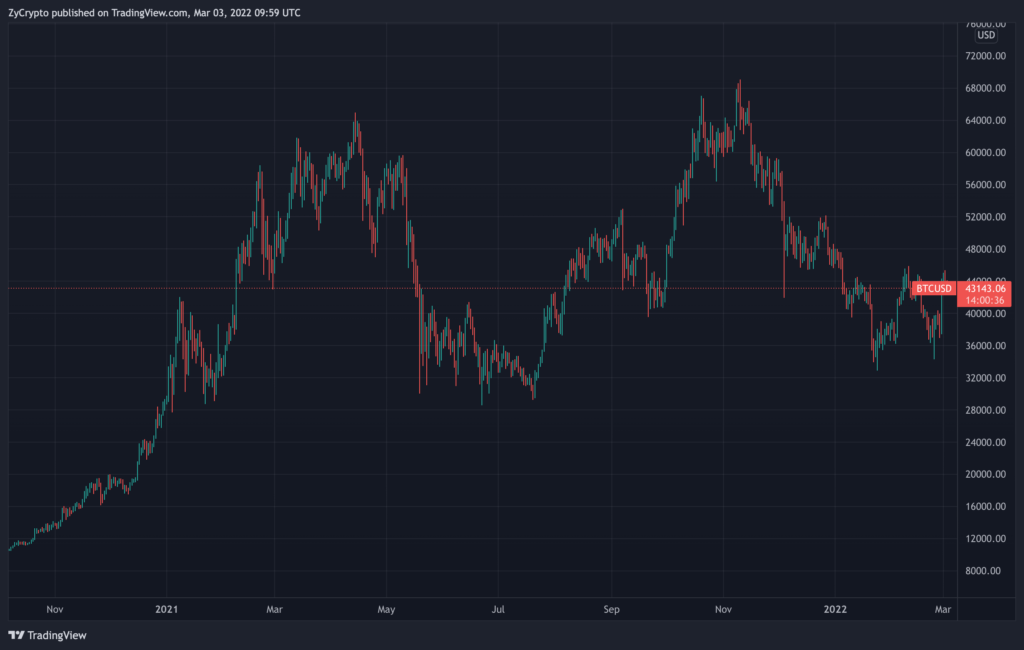The Russia-Ukraine crisis rattled various markets, igniting contrasting reactions in traders’ and analysts’ sentiments. According to recent data by the blockchain analytics company Santiment, the general sentiment toward Bitcoin has dipped to its most negative point since October 2020.
This metric implies that most traders and market pundits are engulfed in extreme fear, and they expect BTC to decline in the coming weeks. Bitcoin funding rates tend to skew toward short-selling, revealing the bearish expectations in most traders. Although the dominant sentiment toward BTC is negative, its market price continues to increase, hitting $45,000 yesterday.
Historical data confirms a close correlation between the dynamics of BTC’s weighted sentiments and prices, although some time lag may still exist in this regard. Santiment’s analysts claim that the level of fear, uncertainty, and doubt has declined to the minimum level since the beginning of Russia’s invasion of Ukraine. The major practical implication of this “FUD” is the envisioned BTC price correction in the coming days. The technical analysis has highlighted the resistance level of $40,000-$43,000 that was overcome by the recent Bitcoin price movement. However, the current FUD Index suggests the risks of a rapid price correction in the near term.
Santiment’s analysis reveals several instances of the FUD Index’s impact on the BTC price movement in the short run. The first recent case occurred in November-December of 2020 during the bullish cycle. The negative BTC sentiment largely caused the rapid price correction in the subsequent weeks. The second one occurred in March-April of 2021, signifying the lowest point of the BTC market within the past two years. The improved sentiment enabled a new wave of BTC price growth in 2021.
The third one occurred in December of 2021, leading to the facilitated price correction at the beginning of 2022. Traders’ expectations preceded the market transition to the “crypto winter” for Bitcoin, Ethereum, and other major cryptocurrencies. The fourth one emerges at the moment, implying the high chances of price recuperation.
Historical data establishes that the fluctuations of the FUD Index typically led to the change in the BTC price trend. If this pattern remains valid, BTC could decline below the previous resistance level of $39k. Traders’ sentiment towards Bitcoin will also depend on the prevalent geopolitical factors and the progress in peace negotiations in Ukraine.
Source: Read Full Article

